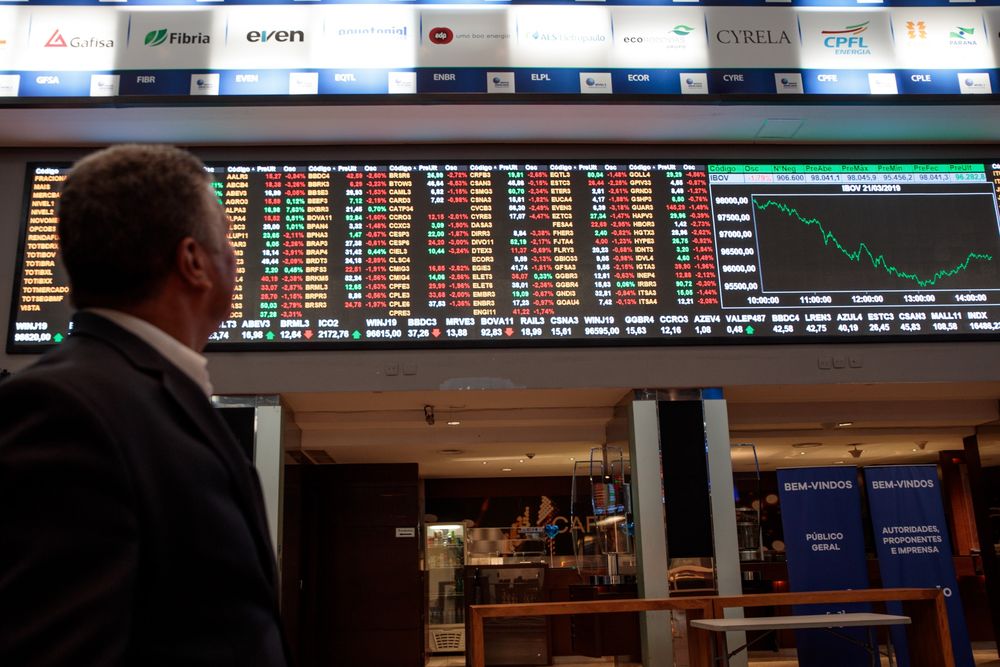RIO DE JANEIRO, BRAZIL – On Monday, January 27th, the IBOVESPA closed down 3.3 percent and offset the year’s gains. This time the great villain of the Stock Exchange was the coronavirus, which has already claimed over 100 victims and infected almost 3,000 people worldwide. In the afternoon, the World Health Organization (WHO) reclassified the international risk of the disease as high, after qualifying it last week as moderate. A total of US$9 billion were sent to fight the disease.
Economists say Japan’s economy may suffer more from the current virus than from the 2003 Severe Acute Respiratory Syndrome (SARS). One of the reasons is Beijing’s decision to ban overseas travel by Chinese tourists, the biggest spenders.

“Any economic shock to China’s colossal industrial and consumer engines will spread rapidly to other countries through the increased trade and financial links associated with globalization,” Stephen Innes, chief Asian market strategist at Axitrader, told Bloomberg.
The IBOVESPA fell by 3.29 percent to 114,481 points, with a trading volume of R$23.747 billion. This was the index’s highest decline since March 27th, 2019, when the Exchange closed down 3.57 percent.
With the devaluation of the stocks that make up the benchmark, the lowest level since December 18th was reached when the IBOVESPA ended the trading session at 114,314 points.
Meanwhile, the commercial dollar rose by 0.59 percent to R$4.2088 in purchase and R$4.2101 in sale. The futures dollar maturing in February gained 0.63 percent to R$4.2105.
In the futures market, the interbank deposits for January 2022 dropped six basis points to 4.92 percent, five basis points to 5.50 percent for January 2023 and one point to 6.28 percent for January 2025.
Is it time to buy or sell stocks?
Júlio Fernandes, manager of XP, says he is still cautious, trying to map and understand the extent of the coronavirus’ economic impact before reaching a verdict. “We are monitoring the development of the disease and waiting for stabilization, which should take one or two months. For now, we are protecting our portfolio,” he says.
On the other hand, Fernandes understands that the long term is still positive, with good growth perspectives for the Brazilian economy due to the reformist agenda implemented by the government.
“We are optimistic because we don’t see this recovery as something like a year. In the short term, there are several impacts and the shares linked to commodities suffer because they are exposed to China, but the scenario for the future has not changed”.
Along the same lines, Morgan Stanley’s analysis team, led by strategist James Lord, believes it is not a good idea to adjust the bank’s overall view for risky emerging market assets because of the virus. “Although the coronavirus represents a short-term risk, it should be temporary in the midst of ongoing stimulatory policies,” the analysts concluded.
In a more positive tone, JPMorgan’s analysis team argued that the global turmoil is a great time to buy discounted assets. The bank’s strategists say that no matter how much the selling wave may continue before fears fade, in the past, major outbreaks have led to a 4.7 percent devaluation on average in the stock markets.
“Fears over health, similar to localized war campaigns, as well as terrorist incidents, have historically been buying opportunities, not reasons for sustained sales,” wrote JPMorgan strategists Mislav Matejka, Prabhav Bhadani and Nitya Saldanha.
Ashmore analyst Gustavo Medeiros says that despite the speed of contagion, the reaction of Chinese and international authorities was quick and decisive, reducing the risk of the disease’s global proliferation. “This makes the current selloff an opportunity for purchasing,” he says.
Medeiros explains that the virus is of the same nature as SARS, which also emerged in China and killed 800 people in 2003. Although the number of casualties is lower than those at the time, the analyst notes that the new virus has an incubation period of two weeks before symptoms develop, so thousands of people may be unknowing carriers of the disease.
The good thing, he points out, is that this time China was much more responsible and quicker to concede the existence of the disease and fight its transmission, than in 2003. “Given the extensive attention and care devoted to fighting the coronavirus, the impact on GDP growth is likely to be short-lived and the volatility will create an opportunity for asset purchases,” says Ashmore’s analyst.
But as with variable income, it is never easy to predict the consequences of an event, Rico Investments analyst Lucas Collazo stresses the importance of caution, because waiting for news coming from China, a closed country with a history of data manipulation, is, in his opinion, imprudent.
“If the coronavirus extends its effects, the economic indicators for the first quarter may be severely impacted. And with interest rates so low around the world, Central Banks may have fewer tools to boost economies”.

